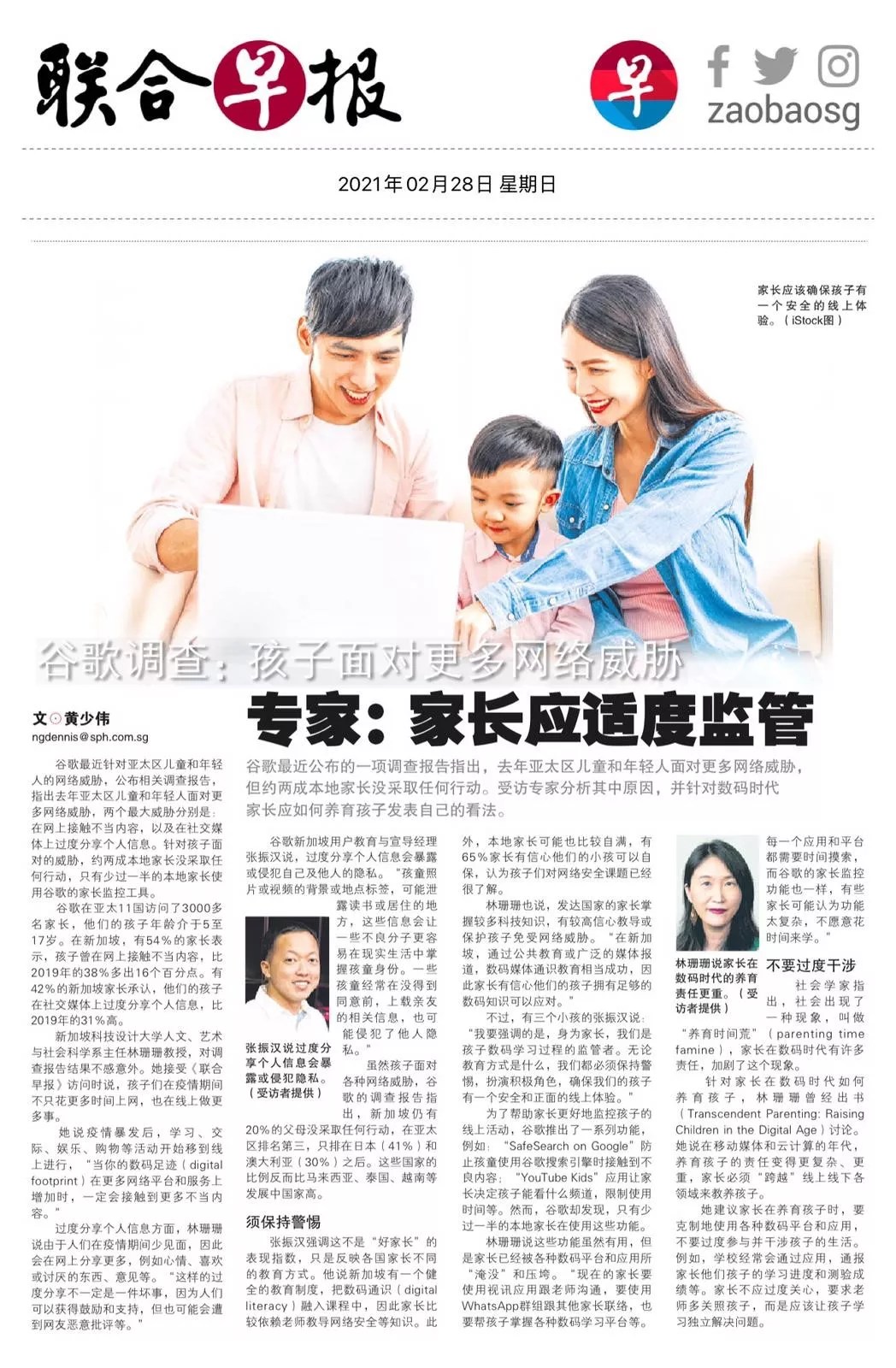Google survey: children face more online threats; Experts: parents should supervise moderately
Google survey: children face more online threats; Experts: parents should supervise moderately
(Summarised translation)
A Google survey found that more children in the Asia Pacific faced cyber risks amid the coronavirus pandemic last year.
In an interview with Lianhe Zaobao, the Singapore University of Technology and Design’s head of Humanities, Arts and Social Sciences, Professor Lim Sun Sun said that the results from the study were not surprising. She said that children not only spend more time online during the pandemic, they also conduct more activities online.
She said that after the pandemic outbreak, activities such as learning, communication, entertainment and shopping shifted online. “When your digital footprint increases on more online platforms and services, you will definitely be exposed to more inappropriate content.”
In terms of excessive sharing of personal information, Prof Lim said that since people seldom meet up during the pandemic, they will tend to share more online, such as their feelings, things they like or dislike, opinions, etc. “Such excessive sharing is not necessarily a bad thing, because people can get encouragement and support, but they may also be maliciously criticised by netizens.”
Prof Lim also said that parents in developed countries have more knowledge of technology and are more confident in educating or protecting their children from cyber threats. “In Singapore, general education in digital media is quite successful through public education or extensive media coverage. Hence, parents are confident that their children have enough digital knowledge to cope.”
In order to help parents better monitor their children’s online activities, Google has introduced a series of features such as “SafeSearch on Google” to prevent children from being exposed to harmful content when using the Google search engine. The ‘YouTube Kids’ app also allows parents to decide what channels children can watch, limit usage time, etc. However, Google found that less than half of local parents are using these features.
Prof Lim said that although these functions are useful, parents have been ‘flooded’ and overwhelmed by various digital platforms and applications. “Parents now have to use video apps to communicate with teachers, WhatsApp chatgroups to communicate with other parents and help their children master various digital learning platforms, etc.”
Every application and platform requires time to learn, and Google’s parental monitoring function is the same. Some parents may think that the function is too complicated and are unwilling to spend time learning it.
Regarding how parents can raise children in the digital age, Prof Lim has published a book (Transcendent Parenting: Raising Children in the Digital Age) on the topic. She said that in the era of mobile digital media and cloud computing, the responsibility of raising children has become more complicated. Parents must ‘cross over’ online and offline fields when raising children.
She advises parents to exercise restraint when using various digital platforms and applications, and refrain from over-participating and interfering with their children’s lives. For example, schools often use apps to inform parents of their children’s learning progress and test results. Parents should not be overly concerned and ask teachers to take greater care of their children, but allow their children to learn to solve problems independently.

